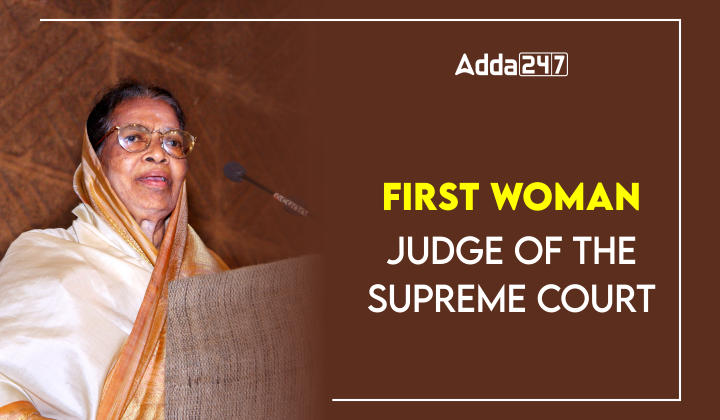First Woman Judge of Supreme Court: M. Fatima Beevi
Justice M. Fatima Beevi holds a distinct and pioneering role in India’s history as the first woman judge of Supreme Court in India. Her groundbreaking appointment in 1989 marked a pivotal movement, opening doors for women in the nation’s highest judicial body. This extraordinary achievement served as a beacon of inspiration to countless individuals, proving that women can excel in every sphere, including the fields of law and justice.
Early Life and Educational Life of Fatima Beevi
Fatima Beevi, born on April 30, 1927 in Pathanamthitta, Kerala, was raised in a society where gender roles were deeply entrenched. She went to school at Catholicate High School and later moved to Trivandrum for more studies. She got a degree in science from University College and then studied law at Government Law College in Trivandrum.
Breaking Records
Fatima Beevi was one of only five girls in her law class, and later only three. But that didn’t stop her. In 1950, after finishing her law studies, she took a big exam called the Bar Council exam. She not only passed but also become the first woman to get the highest marks. She even got a special medal for this achievement.
| Other Important Articles | |
| First Females in India | First Female Teacher in India |
| First Female Speaker of Lok Sabha | First Female Train Driver in India |
Legal Career of M. Fatima Beevi
After becoming a lawyer, she started working in the lower courts in Kerala from November 14, 1950. She kept moving up and eventually reached an important position of judge in Supreme Court of India.
Historic Appointment of M. Fatima Judge
On 6 October, 1989, Justice Fatima Beevi created history by becoming the first lady judge in India’s Supreme Court. This was a huge deal because it showed that women could do any job, even ones that were usually done by men. Her appointed opened the doors for other women who wanted to work in the law field.
Notable Judgements
Fatima Beevi’s legacy also includes her insightful judgements. In cases such as “Scheduled Caste and Weaker Section Welfare Assn. v. State of Karnataka” and “Assam Sillimanite Ltd. v. Union of India”, her thoughtful approach underscored the importance of safeguarding citizen rights and questioning unconstitutional laws.
Beyond the Courts
After retiring from the Supreme Court, Fatima Beevi became a member of the National Human Rights Commission. Fatima Beevi also had a political career. She became the Governor of Tamil Nadu on 25th January 1997. This showed that she was also a great leader who made important decisions for the state. From 1997-2001, she served as the Governor of Tamil Nadu, leaving an indelible mark on governance.
Legacy
Fatima Beevi’s remarkable journey, from a young woman in Kerala to a pioneer in the Indian legal system, continues to inspire generations. Her unwavering commitment to justice, her trailblazing spirit and her advocacy for gender equality have left an indelible mark on India’s legal landscape.



 Indian Olympic Medal Winners List Till N...
Indian Olympic Medal Winners List Till N...
 Who is the Inventor of the Gramophone?
Who is the Inventor of the Gramophone?
 HS Dhaliwal Appointed New DGP Of Andaman...
HS Dhaliwal Appointed New DGP Of Andaman...
